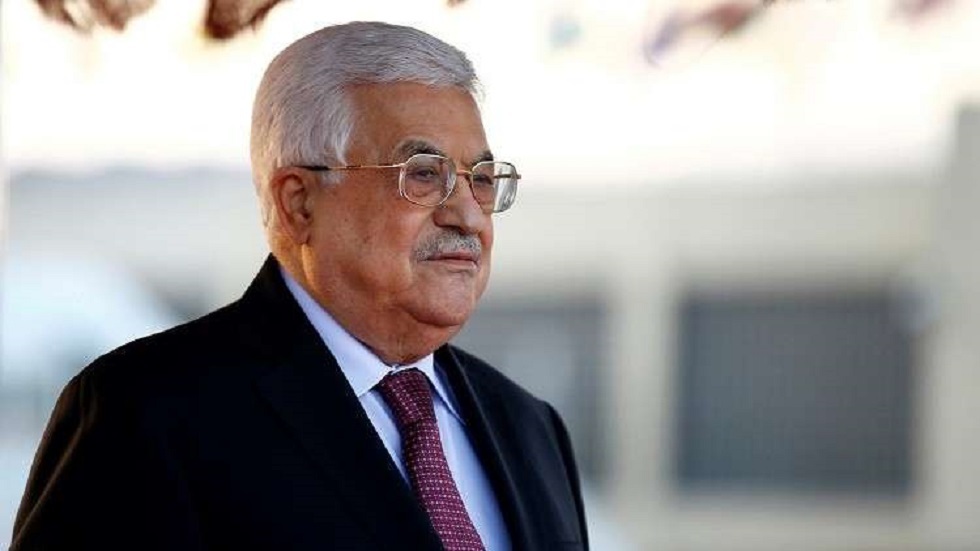Key International Talks on Gaza's Future Convene in Riyadh
In a pivotal moment for Middle East diplomacy, global leaders gather in Riyadh to chart a path towards peace and address the Gaza crisis.
Published April 28, 2024 - 00:04am

Image recovered from shorouknews.com
Mahmoud Abbas, the President of Palestine, arrived in Riyadh with his delegation to participate in the special meeting of the World Economic Forum dedicated to bolstering international cooperation and addressing issues of growth, energy, and development.
In a concerted effort to push for peace in Gaza, top international officials, including Palestinian President Mahmoud Abbas, have convened in Riyadh for crucial talks. The World Economic Forum's meetings have garnered significant attention, focusing on reconciling differences and propelling efforts towards a ceasefire in Gaza.
Prior to his scheduled meetings in Israel, U.S. Secretary of State Antony Blinken arrived from China, joining the discussions in Saudi Arabia. The meetings also witnessed the participation of Turkish Foreign Minister Hakan Fidan, reported Reuters. Regional representations include the Qatari Prime Minister and Foreign Minister Sheikh Mohammed bin Abdulrahman, Saudi Foreign Minister Prince Faisal bin Farhan, and Omani Crown Prince Theyazin bin Haitham bin Tariq, alongside officials from Bahrain and Foreign Ministers and Prime Ministers across the Middle East and Europe, encompassing France, Germany, Britain, the European Union, and leaders from Jordan, Egypt, and Iraq.
With an aim of reinvigorating the stalemated efforts to halt the Israeli offensive on Gaza and repatriation of the remaining Israeli hostages, Egyptian negotiators have held talks in Israel, a briefing that Egyptian Foreign Minister Sameh Shoukry will present to the officials in attendance.
During the press conference in Riyadh, WEF President Borge Brende highlighted the humanitarian crisis in Gaza as a pivotal agenda item, emphasizing the ongoing negotiations concerning hostages and the potential for a ceasefire agreement.
With diplomatic momentum on the rise, the conference attended by more than 1,000 participants including 12 heads of state and government, becomes a ground for potential reconciliation and peace in the Middle East, potentially reshaping the future of Gaza.
The convergence of leading international figures in Riyadh for the World Economic Forum reflects the gravity and urgency with which the international community views the situation in Gaza. The multifaceted discussions serve not only as diplomatic engagements but also as strategic sessions aimed at formulating actionable solutions to end the conflict and alleviate the suffering of civilians.
Among the key goals of the meetings is to secure commitments for humanitarian aid to Gaza, where infrastructure has been severely damaged, leading to a cascade of crises in healthcare, education, and basic services. High-level talks are also expected to address economic revival strategies for the Palestinian territories, exploring frameworks for investment and international aid that could spur job creation and stabilize the region economically.
Furthermore, the summit serves as a platform for broader dialogue on Middle Eastern security and stability. The implications of peace in Gaza extend to countering regional extremism, reinforcing cross-border cooperation, and enhancing mechanisms for crisis prevention and response among neighboring states.
U.S. Secretary of State Antony Blinken is anticipated to leverage his recent talks in Beijing to foster stronger international collaboration, particularly in bridging gaps between differing geopolitical interests. Officials in Riyadh are keen to discuss energy security as well, particularly in light of recent oil market volatility and the global push for sustainable energy transition.
The inclusion of representatives from a wide array of nations and organizations signifies the recognition of the interconnected nature of Middle Eastern peace prospects with broader global challenges. From climate change to pandemic recovery, the deliberations extend to how resolution in Gaza can feed into larger goals of fostering a stable, peaceful, and prosperous international order.
Parallel to high-stakes political negotiations, several civil society organizations and humanitarian groups are maintaining a presence at the forum. Their role in post-conflict recovery in Gaza, focusing on education, public health, and community rehabilitation, is seen as crucial to laying the foundations of a durable peace.
As the talks progress, all eyes are on the potential outcomes of the summit. A pathway to ceasefire could spell the beginning of a new chapter for Gaza and a decrease in tensions across the region. However, negotiators are cognizant of the complexities involved and the historical challenges that have thwarted previous attempts at sustained peace agreements.
The World Economic Forum in Riyadh thus remains a poignant reminder of the intricate tapestry of international relations and the pivotal role of diplomatic engagement in resolving deeply entrenched conflicts. The outcomes of this special meeting could indeed pave the way for a transformative era in Middle Eastern affairs, with robust economic and political ramifications resonating well beyond the region's borders.
As delegations continue with their negotiations, the world awaits, hopeful for reports of progress and concrete steps towards ending the longstanding conflict. The resolution of these issues not only promises peace for the citizens of Gaza but also stands as a testament to the power of international diplomacy in an increasingly complex global landscape.


:quality(70)/cloudfront-eu-central-1.images.arcpublishing.com/irishtimes/SV5HVQWI7BV6H65746THQB7QAM.jpg)




